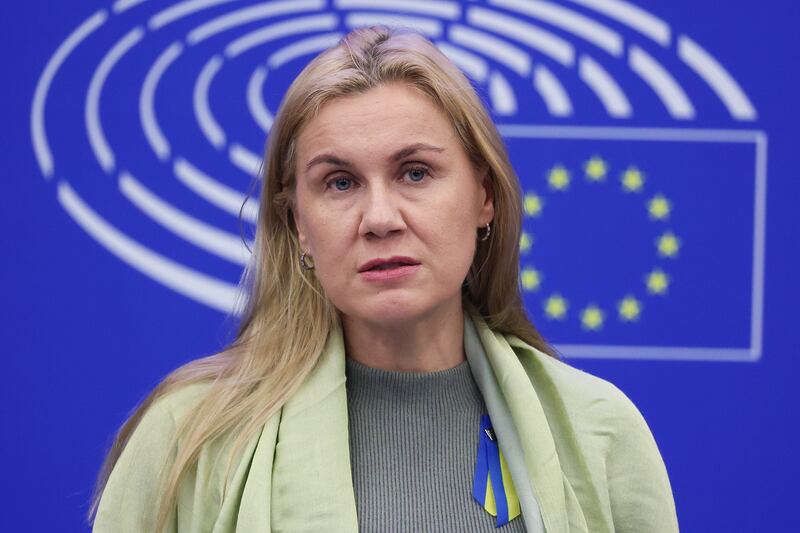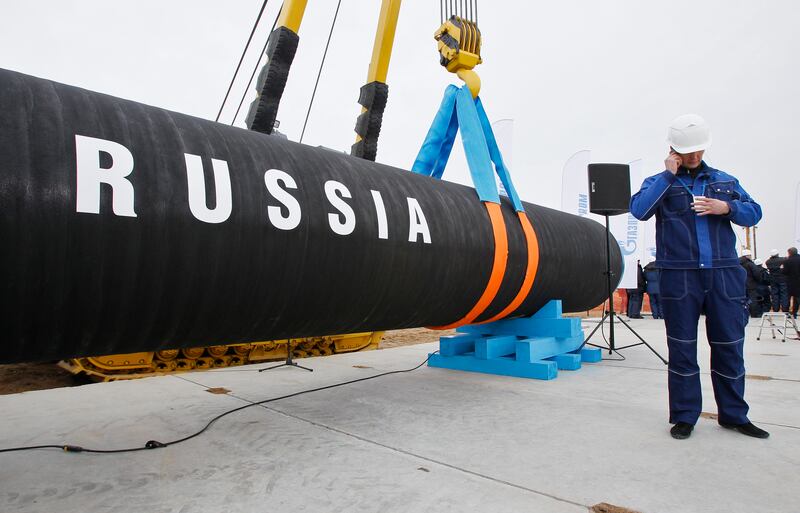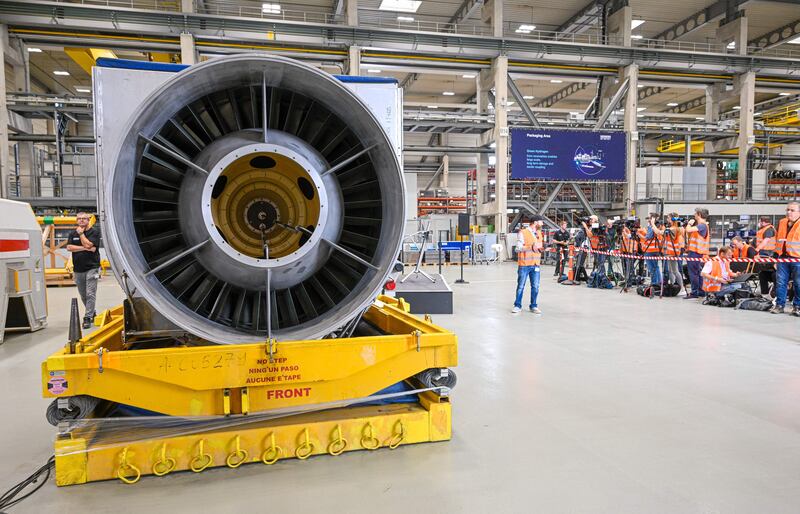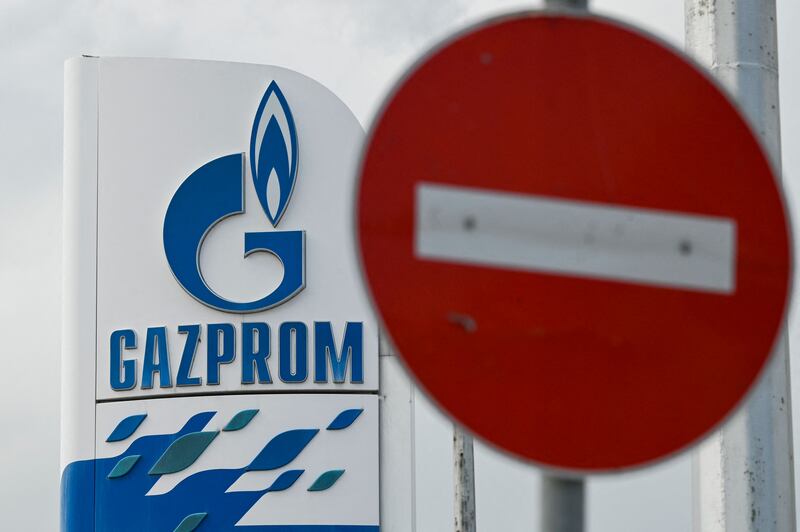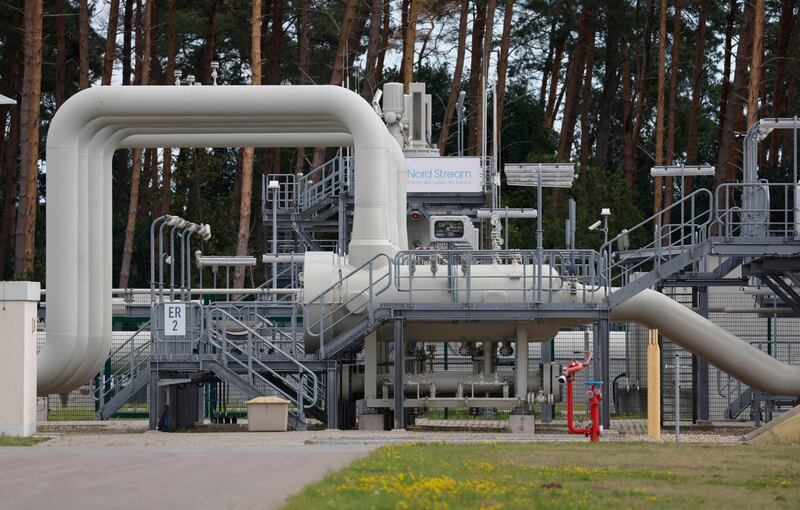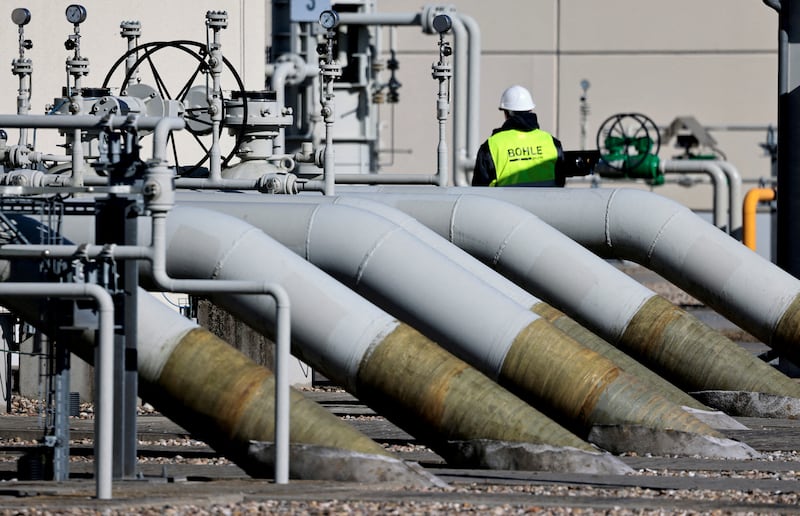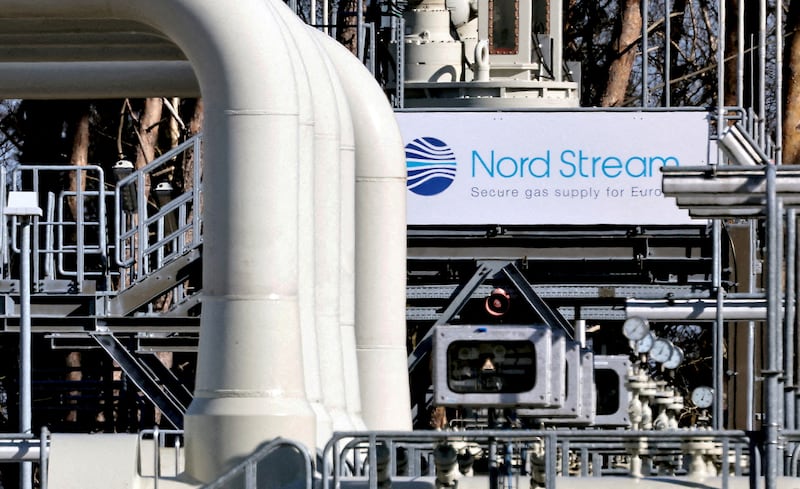The European Commission on Tuesday proposed introducing an emergency one-year gas price cap from January 1 to contain episodes of excessive prices such as those that happened over the summer.
“We propose to put a ceiling on the TTF (Title Transfer Facility) gas price to protect our people and businesses from extreme price hikes,” European Commissioner for Energy Kadri Simson said at a press conference in Strasbourg, France.
Ms Simson told reporters that the market correction mechanism, which would automatically stop month-ahead transactions from taking place on the Dutch TTF gas hub, would be triggered under two conditions.
First, month-ahead prices need to exceed €275 per megawatt hour over two weeks. Second, the spread between TTF prices and global LNG prices need to reach €58 for 10 trading days within those two weeks.
“The mechanism is carefully designed to be effective, while not jeopardising our security of supply, the functioning of EU energy markets and financial stability,” said Ms Simson.
Other transactions could continue operating over-the-counter products, which are less transparent and imply greater risks of defaulting on obligations for the parties involved, the commission said in an outline of the mechanism shared with journalists last week.
The aim is not to lower overall gas prices but to address episodes of excessive prices such as those seen in August. Month-ahead prices on August 26 reached €320 per megawatt hour and five days later fell to €231. Today, month-ahead prices are at €116.
“This is very extreme volatility within a very short period of time,” said a senior EU official.
The proposal is proving highly divisive among the bloc’s 27 member states. It will be examined but is unlikely to be adopted during the next extraordinary energy council on Thursday, an EU diplomat said.
“It’s a debate that’s raised a lot of emotions. It’s flying among the highest political levels among member states,” he said.
European leaders in late October gave the commission the mandate to work on capping gas prices.
But the proposal put forward on Tuesday is unlikely to satisfy the 15 EU countries, including France and Spain, that have been asking for a gas price cap for months.
Some diplomats have called for a cap as low as €150.
“Otherwise, we'll have a cap on paper that will in practice never kick in,” an EU diplomat, who spoke under condition of anonymity, told AFP.
Other countries such as the Netherlands and Germany have been cautious about capping gas prices.
Europe’s leading energy exchanges, the Association of European Energy Exchanges, warned before the commission’s announcement that its proposed mechanism posed a serious threat to the region’s security of supply and financial stability, and will do little to achieve its goal of lowering energy costs.
Ms Simson said that the proposed mechanism was designed for next year’s gas-filling season, when Europe will have to fill its underground storage without access to Russian gas.
More than 40 per cent of imported pipeline gas came from Russia before its invasion of Ukraine in February. That figure has gone down to below 9 per cent.
Activation and deactivation of the mechanism would be automatic and based on numerical values established by the European Union Agency for the Co-operation of Energy Regulators, said a senior EU official.
Should the agency believe that activation is imminent, it would seek input from the European Central Bank, the European Securities and Market Authority, the European Network of Transmission System Operators for Gas and a co-ordination group that includes the commission and the bloc's 27 member states.
Gazprom threatens supply cuts
Russian energy company Gazprom said on Tuesday that Ukraine was diverting natural gas supplies transiting to Moldova and threatened to curtail deliveries through a key pipeline to Europe in response.
The allegations are the latest point of tension over energy deliveries between Kyiv, European capitals and Moscow, which has reduced consignments to Europe in response to western sanctions over the conflict in Ukraine.
“The volume of gas supplied by Gazprom … for transit to Moldova via Ukraine is more than the physical volume transmitted at the border of Ukraine with Moldova,” Gazprom said in a statement.
The Saint Petersburg-based company said Ukraine had obstructed 52.52 million cubic metres from being delivered to Moldova and threatened cuts in response.
Russia's Gazprom gas pipelines to Europe — in pictures
“If the transit imbalance through Ukraine for Moldovan consumers persists, on November 28, from 10:00, Gazprom will begin reducing gas supply” through a key transit point for deliveries to Europe, the company said.
Ukraine denied the allegations, saying that all the gas volumes bound to Moldovan consumers have been transferred “in the full amount”.
“By threatening to reduce the volumes of gas transport to Moldova, Gazprom is trying to deprive this country of the opportunity to use the Ukrainian gas transmission system,” Ukraine GTS operator official Olga Bielkova said in a statement.
“This is not the first time Russia has resorted to using gas as an instrument of political pressure.
“It manipulates facts to justify its decision to limit further the volume of gas supplies to European countries.”
The threats come at a precarious moment for energy security in Europe, which scrambled to fill gas storage sites before winter.
Ukraine is suffering a severe energy crisis after weeks of persistent Russian strikes on its energy grid, which has also led to power cuts in neighbouring Moldova.
Chisinau's pro-European President Maia Sandu has warned that her country of 2.6 million people nestled between Romania and Ukraine could run out of power this winter.
